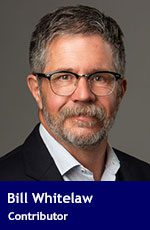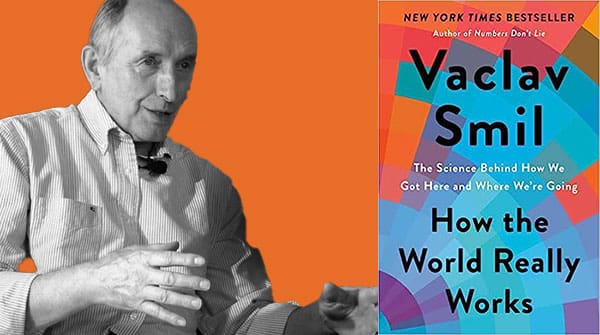And Vaclav Smil has a proposal to extricate Canada from its decarbonization dilemma
 The ideological extremes of any situation rarely produce anything of tangible value. This notion is glaringly visible in the contemporary energy landscape of Canada, which is beleaguered by cacophonic extremes from the political left and right. The fringes are abundant with futile noise, unachievable goals, and hollow, politicized rhetoric, utterly detached from the realities recognized by average, commonsense Canadians.
The ideological extremes of any situation rarely produce anything of tangible value. This notion is glaringly visible in the contemporary energy landscape of Canada, which is beleaguered by cacophonic extremes from the political left and right. The fringes are abundant with futile noise, unachievable goals, and hollow, politicized rhetoric, utterly detached from the realities recognized by average, commonsense Canadians.
It is important to recognize that the likelihood of Canada decarbonizing its electricity grid by 2035 – a putative federal objective – is as unrealistic as the expectation that Alberta’s oil and gas industry will remain unaltered by the same year. The world simply does not operate in such a binary fashion, a reality often lost in the crossfire of polarized political discourse.
 |
| Related Stories |
| Decarbonization – How the world has lost its mind on energy
|
| A Q and A with skeptical environmentalist Bjorn Lomborg
|
| Greenwashing label discourages real solutions to energy crisis
|
Vaclav Smil, a veteran scholar from the University of Manitoba, understands the perils of political posturing that obstruct societal progress toward tackling truly important issues. His extensive work has made him acutely aware of the damaging effects when politics trump science and disregard practical realities. Smil’s forthcoming participation in the annual Energy Business Forum hosted by the Canadian Energy Executive Association (CEEA) in Banff provides an apt occasion for Prime Minister Justin Trudeau and Alberta Premier Danielle Smith to listen to his insights on the realistic operations of the world.
In his latest work, How the World Really Works: The Science Behind How We Got Here and Where We’re Going, Smil demystifies complex scientific concepts for the common reader. The leaders of Canada and Alberta, albeit possibly well-intentioned, often allow politics to cloud their judgment when addressing the challenges that Canada truly confronts. Unfortunately, their ongoing squabble has descended into a theatre of the absurd, as both fail to acknowledge the impracticality of their stances amidst Canada’s immediate climate and energy transition needs.
In a 2022 New York Times interview, Smil expressed his concerns about the politicization of energy and climate change science, stating that we require a more realistic perspective that acknowledges natural laws, thermodynamics, and energy conversions. For instance, a certain amount of carbon or hydrogen is needed to smelt steel. These hard facts cannot be negotiated or brushed aside by political manoeuvring.
Smil is neither a climate alarmist nor an absolutist. He maintains a pragmatic outlook that takes scale, measurement, and numbers into consideration. The functioning of our world largely depends on material resources like cement, steel, plastics, and ammonia. Therefore, a realistic appraisal of their role is essential rather than extravagant aspirations of changing the world dramatically or maintaining a status quo.
A hypothetical “Banff Reality Goal Breakfast” featuring Smil, Trudeau, and Smith could potentially reorient their understanding. The leaders could realize the possibility of their goals converging rather than clashing, thus paving the way for a reality-based collaboration. This new alliance could lead to the depolarization of the ongoing debate while setting achievable milestones for Canadians.
Smil emphasizes the importance of setting realistic goals rather than ideological ones that cannot be accomplished, leading to disillusionment. He believes in strict realism when it comes to setting goals, and a meeting between these key players could potentially infuse this pragmatic element into the energy discourse.
It is time for Canada’s leadership to tune out the deafening noise from the ideological fringes and adopt a more realistic, grounded approach to tackle the energy transition. A generous serving of pragmatic wisdom at a hypothetical “Banff Reality Goal Breakfast” could potentially offer a way forward.
Bill Whitelaw is the Managing Director of Strategy & Sustainability with Geologic Systems.
For interview requests, click here.
The opinions expressed by our columnists and contributors are theirs alone and do not inherently or expressly reflect the views of our publication.
© Troy Media
Troy Media is an editorial content provider to media outlets and its own hosted community news outlets across Canada.
